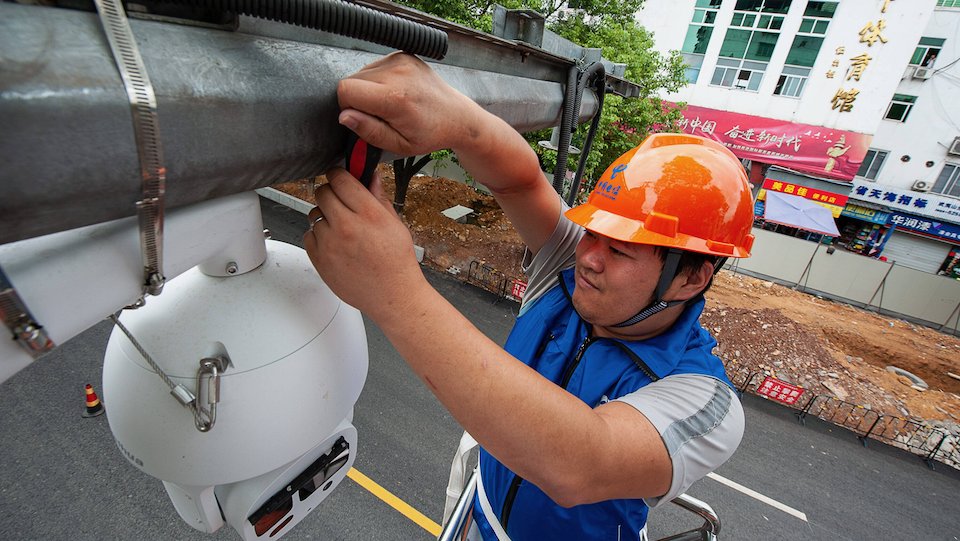China develops surveillance system against journalists

China’s Henan Province has ordered the construction of a facial recognition surveillance system that will track foreign journalists, students and others. According to the tender, which was made public on Tuesday, the system will include 3,000 surveillance cameras and will be linked to national and regional databases.
The tender states that the movements of international students should be registered through methods such as cell phone tracking, travel bookings and hotel reservations, especially on important dates such as the national holiday or the annual parliamentary session. It is planned that the surveillance system will be used by 2000 police officers and other officials.
Facial recognition should also work reliably when observed persons wear face masks or glasses, so that the images are suitable for automatic searching in databases even under these circumstances.
“This document illustrates the first known instance of the PRC building custom security technology to streamline state suppression of journalists,” Donald Maye, IPVM’S Head of Operations of the surveillance technology research firm IPVM told Reuters news agency.
“Unique” surveillance system
Journalists are to be divided into three categories according to the traffic light colors red, yellow and green in order to indicate the urgency of tracking. Whether an acute alert is triggered when certain media professionals move is to depend, among other things, on the reason for the trip, the type of reporting and the destination.
The surveillance system is “unlike anything” researchers have discovered so far, the U.S. company IPVM reported. It had found the nearly 200-page request for proposals online. The fact that media professionals are specifically named as surveillance targets is “unique,” it said.
In the majority of the documents, references are made to journalists in general, but in some places they specifically refer to “foreign journalists”. The tender does not provide any explanation as to why journalists and foreign students in particular are the focus of surveillance. In addition, “women from neighboring countries who are staying illegally” are named as a target group.
However, on principle, target groups and alerts to be monitored could be created on the basis of numerous personal characteristics: Other options include characteristics such as ethnicity, behaviors such as visiting certain places, education and occupation, age, gender, or appearance such as wearing glasses.
The Henan government had already published a brief summary of the planned project on its procurement platform last October, according to Reuters. This stated that the system would be “foreigner-centric” and contribute to the “protection of national sovereignty”.
Hostility towards reporters
The project was then put out to tender at the end of July by the “Henan Provincial Public Security Department” to monitor and track down “affected” people in the province. However, it only became public knowledge through publication by IPVM.
Henan is home to around 99 million people. The contract, worth 5 million yuan (around 690,000 euros), was awarded to the Chinese software and IT company Neusoft in mid-September, IPVM reported.
The tender was issued a few days after foreign reporters were attacked and harassed in the region. They had been reporting on flooding there that killed more than 99 people. Employees of the AFP news agency reported at the time that they had been forced to delete footage by passers-by; BBC reporters had been harassed online and threatened with murder.
The Foreign Correspondents Club of China (FCCC) sees the crackdown on journalists as state-driven: “Rhetoric from organizations affiliated with China’s ruling Communist Party directly endangers the physical safety of foreign journalists in China and hinders free reporting.”
As of Monday, the documents are no longer available on the agency’s site, according to Reuters. Neusoft did not respond to inquiries from the press. Neither did the Henan provincial government or police respond to questions. Whether other provinces are also building or perhaps already operating similar surveillance systems is also unknown. However, this specific system is also just one part of China’s already extensive surveillance apparatus (in German). (hcz)